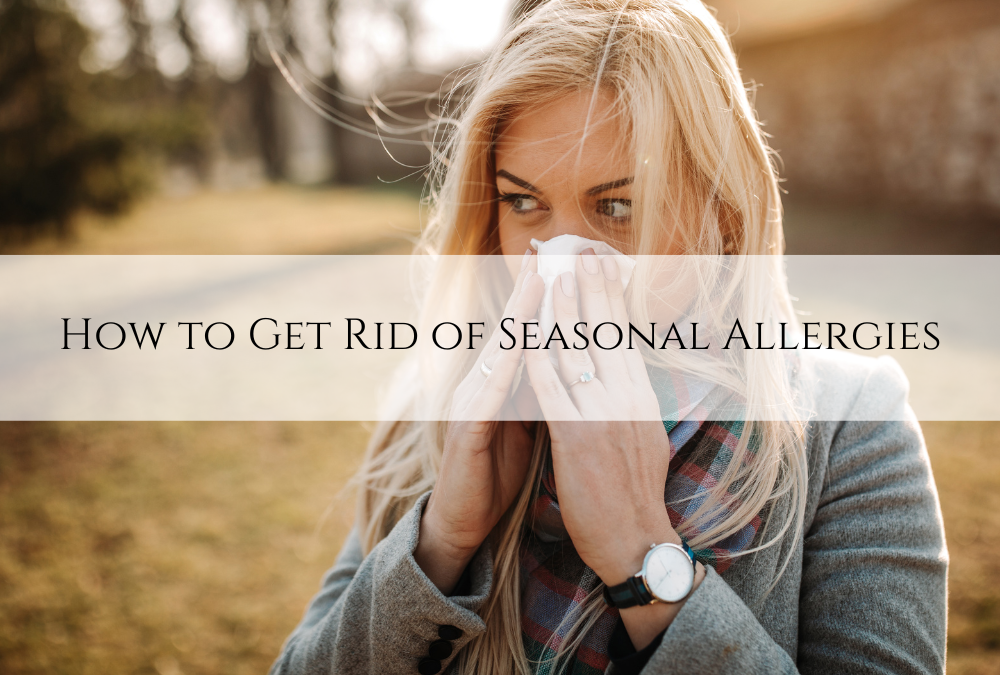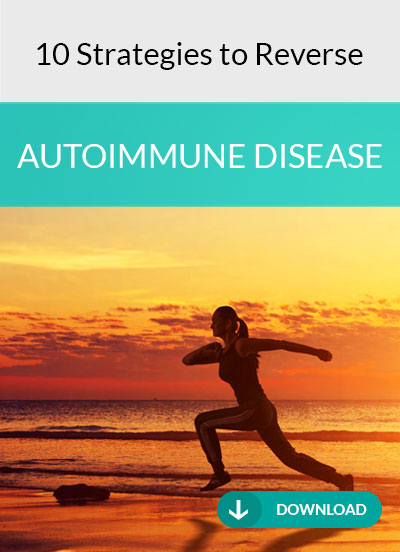How to Get Rid of Hay Fever for Good
As we approach spring, many of my patients suffer from the frustrating red itchy eyes, runny nose, coughing and sneezing that signal the arrival of seasonal allergies, or hay fever as they’re also called.
It’s especially common for my autoimmune patients to suffer from hay fever symptoms. They are hypersensitive to allergen exposure because their immune systems are already in an overactive state due to their autoimmune disease.
In all my patients with allergies I use a seasonal allergy treatment approach that is nearly foolproof in getting rid of their seasonal allergies, or at least reducing symptoms and making them more comfortable. Here’s what I do to naturally treat seasonal allergies.
Minimize Exposure to Allergens
Although you can’t completely avoid exposure to seasonal allergy triggers, you can reduce it. The first way to reduce exposure is to use an air filter in your house.
The second way is to perform nasal washing, ideally as soon as you step back inside from being outdoors. By rinsing your sinuses, you are decreasing the number of allergens harbored in your sinus cavities. You will also reduce the chance of an allergic reaction and minimize the degree of reaction. Think of your sinus cavity like a filter that prevents things you breathe in from getting into your body. You want to clean your filter to reduce build-up so it can better protect you. You can do this by using a neti pot.
Ready to get started with your neti pot? First, empty a saline packet with xylitol into distilled water (these packets are available over the counter). When you have your saline and xylitol rinse ready, add one dose of colloidal silver (follow the dosing instructions on the label). Both xylitol and colloidal silver are anti-microbial, to help get rid of pathogens in your sinuses and to disinfect the distilled water. I find this hay fever treatment is one of the most effective.
Also be aware that some foods cross-react with pollen. That means the immune system cannot always differentiate pollen from a related food. For example, if you have an allergy to a specific type of pollen and you eat a cross-reactive food, it could trigger the same hay fever symptoms caused by the pollen itself. As many as 60% of all food allergies in adults are due to cross-reactivity between foods and pollen. You can trial an elimination diet of suspected foods to see if it helps your symptoms.
Common Cross-Reactivities Between Pollen and Food
| Pollen | Foods that Can Cross-React |
| Birch | Apples, Hazelnuts, Celery, Carrots, Soy |
| Olive Tree | Peach, Pear, Watermelon, Kiwi, Banana, Cantaloupe, Honeydew |
| Ornamental Ficus | Pineapple, Avocado, Papaya, Fig, Kiwi |
| Bermuda Grass | Cantaloupe, Tomato |
| Ragweed | Cantaloupe, Honeydew, Zucchini, Cucumber, Echinacea |
| Mugwort | Parsley, Peanut, Caraway, Fennel, Garlic, Onion, Leek, Paprika, Pepper, White Mustard, Cabbage, Broccoli, Cauliflower, Almond |
| Plane Tree | Hazelnut, Celery, Banana, Peanuts |
| Japanese Cedar | Oranges |
| Timothy Grass | Wheat |
| Orchard Grass | Oranges |
Protect Your Barriers
Everyone has barriers in the body that keep harmful substances from entering where they don’t belong. The gut, sinuses, and skin are just a few examples of barriers that protect you. I took a deep dive into these barriers in this previous blog post.
One of the most well-known barriers is the gut barrier. When the gut barrier is strong and healthy it protects against leaky gut. By keeping the gut healthy you’re more tolerant to allergens. Having a healthy gut barrier reduces inflammation and teaches the immune system to stay calm.
Even the sinuses have a barrier and a unique microbiome. When pathogens disturb the sinus barrier, you can become more vulnerable to the effects of seasonal allergies. For example, if your immune system is constantly triggered by mold overgrowth in your sinuses, it won’t have enough strength left to defend against an allergen onslaught. This is another good reason to use a neti pot with xylitol, saline, and silver, as mentioned earlier in this article.
Strengthen the Immune System
In my patients with allergies, I work on the immune system directly to figure out what nutrients or other factors are missing that help regulate the immune response. Good nutrition is an important way to defend against seasonal allergens.
For some people, their immune systems are overactive because they’re missing key nutrients that regulate the immune system like vitamin D, omega-3s, or glutathione. These nutrients help with T-regulatory cells, T-reg cells for short. T-reg cells are the “conductor” to your immune system’s orchestra. T-reg cells help balance out the immune response so it doesn’t overreact to normally harmless allergens.
Other people are not necessarily deficient in nutrients, but have a hard time breaking down histamine. The immune system makes histamine when you have an allergic reaction, causing skin rashes, swelling of limbs, redness of face, breathing difficulty, and more. People who can’t break down histamine will have a bigger reaction to allergens than those who can easily get rid of extra histamine.
In these people, we replace the diamine oxidase (DAO) enzyme, the primary intestinal enzyme involved in breaking down histamine. By replenishing DAO in their GI tract, they can metabolize histamine better, stopping histamine from building up to excessive levels in the blood.
Reduce Hay Fever Symptoms
Suffering from hay fever symptoms all season long puts a huge strain on your body, which in turn only makes your immune system weaker.
Botanicals like quercetin, bromelain, and stinging nettle, as well as vitamin C, serve as natural remedies for seasonal allergies. They soothe the allergy response so people can better handle allergen exposure.
Quercetin, bromelain, and stinging nettle have a different mechanism than over-the- counter allergy medications, which just block the histamine response, rather than helping the body handle the allergens. Natural remedies for pollen allergies can help fix the problem instead of just putting a Band-Aid on it.
How to Get Rid of Allergies
As a functional medicine provider, I can work with you to customize your seasonal allergies treatment. I’ll order the proper test to find out how your immune system is working and work with you on strengthening your gut, sinus, and lung barriers. You will look forward to spring and summer because you will be able to enjoy the outdoors again. I invite you to get in touch with me at the Caplan Health Institute. You’ll breathe easier during pollen season and beyond.
Board Certified in Integrative Medicine
Certified Functional Medicine Practitioner
Institute for Functional Medicine Certified Practitioner






